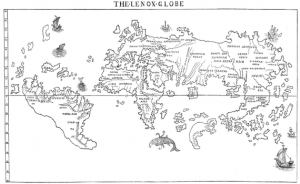 I’ve made the claim that the half-life of knowledge is shrinking in most domains. We often frame this from the perspective of the increasing volumes of data and information we are called on to assimilate, but there is something worth teasing out by thinking in terms of pace instead of volume.
I’ve made the claim that the half-life of knowledge is shrinking in most domains. We often frame this from the perspective of the increasing volumes of data and information we are called on to assimilate, but there is something worth teasing out by thinking in terms of pace instead of volume.
One of the first places I encountered this notion of the accelerating decay of knowledge was in reference to its impact in engineering fields. James Plummer, Dean of Stanford’s Engineering School, observed that
“The half of life of engineering knowledge is three to five years. As dean, I used to tell students it doesn’t matter what we teach you because it will be obsolete when you graduate, so go out and have a good time.” The Engineers of the Future Will Not Resemble the Engineers of the Past
He’s right if you think of his teaching responsibility as installing an up-to-date and accurate body of knowledge. While he nods in the direction of life-long learning, he doesn’t say anything about how life-long learning should differ from the way it has been organized in formal educational settings. Our naive assumptions about how learning works are anchored in our experience in schools and classrooms; there’s stuff to be learned, an expert to teach it, and a timetable to follow. At the other extreme, there is on-the-job training with little or no structure or guidance.
We see some attention to the notion of learning how to learn. Most of that, however, focuses on how to do a better job within the structures of courses, classrooms, and schools we feel comfortable with. The proliferation of new channels for learning—Khan Academy, Udemy, MOOCs — stay within the broad outlines of that comfortable structure.
None of that addresses the question of how to approach learning when the knowledge landscape is in constant flux. What do you do if you need to pick up a new skill before someone writes the book or the course you need in this structure? How do you manage your learning when figuring out what you need to learn is the first order of business? Worse, everyone else is in the same predicament; new knowledge is accumulating and old knowledge becoming obsolete faster than the systems we know can adapt.
There is one example I can think of for managing learning under these conditions. That is the world of doctoral students in evolving disciplines.
The assumptions about knowledge and learning baked into work at that level match the environment much more effectively than the assumptions built into studies at earlier stages of learning and knowledge acquisition. That change in assumptions, in fact, is one of the traps that students fall into when they try to make the transition into doctoral level work. It isn’t that the work gets harder. The work doesn’t conform to the practices that worked for acquiring and demonstrating your mastery of a known body of knowledge.
First, you discover that the consensus on what constitutes the relevant body of knowledge is in flux and always will be. As a fledgling expert in the field a doctoral student is now expected to develop a point of view about where the knowledge edges are; eventually, you are expected to push beyond them. In stable fields, you have the luxury of limiting your search for answers to the authoritative texts. In the worlds we are discussing now, you are forced to seek out and make sense out of primary sources. Behaviors that once would have gotten you in trouble–questioning sources, arguing with your teachers, disputing conclusions–are now skills to be developed. You must learn to develop your own models and conclusions to make sense of new data as it appears.
This leads to the second key difference; there are more experts to know of and they disagree. The good ones expect you to disagree with them. Learning is less about finding a master whose feet you can sit at and more about finding colleagues to travel with. Learning takes on the flavor of conversations with challenging people. Conversations imply that you should expect a balanced distribution of questions, answers, hypotheses, and evidence. Asking “will this be on the exam” becomes a   question you must answer for yourself.
Finally, you must develop map making skills. You are in new territory, out where the dragons lurk. You need to keep track of where the sinkholes and oases lie. This will keep you safe on your own journey and give you something to compare notes on as you encounter other travelers drawing maps of their journeys.
Hey, Loved your Blog.It was very helpful and interesting.
Do check http://mindscriptproject.com/